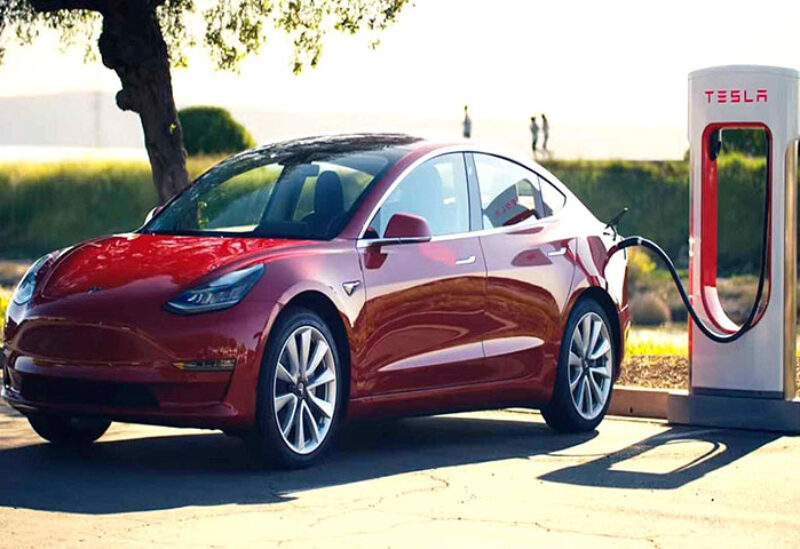
Tesla' electric vehicles
Electric vehicle maker Tesla saw a huge surge in its first quarter net profit as its revenue soared on the back of record deliveries and strong environmental credit sales.
Net profit surged to $438 million, which was more than 27 times the $16m earned in the same period a year ago.
It was the seventh straight profitable quarter for the world’s biggest EV maker.
Revenue during the three months to March 31 increased 74 per cent to $10.3 billion, exceeding analyst expectations of $10.2bn.
This was the second time in the row the company reported $10bn or more in sales. But it was 3.3 per cent ($355m) less than the fourth quarter of 2020.
“We achieved our highest ever vehicle production and deliveries … in spite of challenges, including seasonality, supply chain instability and the transition to the new Model S and Model X,” the company said.
“We have sufficient liquidity to fund our product roadmap, long-term capacity expansion plans and other expenses.”
After the earnings announcement, Tesla’s stocks surged almost 1.2 per cent to 738.2 a share on Monday. The company’s shares have climbed more than 362 per cent in the past 12 months.
Sales of regulatory credits were higher than the quarterly profit. It rose to $518m this quarter, up from $354m in the same period last year.
The California-based company delivered 184,800 in the first quarter of this year, beating analysts’ estimates despite a shortage of chips that has hit the automotive industry worldwide.
In the January-March period, it only produced Model 3s and Model Ys, and did not make any of its more expensive Model S saloons and Model X SUVs, which are priced from $75,000.
Instead, it sold Model S and Model X vehicles from its existing inventory. These made up just 1 per cent of first quarter sales.
On an earnings call, the billionaire chief executive and co-founder of the company Elon Musk said a new version of the Model S would be delivered from next month.
Musk admitted that supply chain issues were likely to remain a challenge for Tesla this year.
Global sales of EVs accelerated last year, rising 43 per cent to more than 3.2 million, according to Swedish data company EV-volumes.com.
Tesla sold the most electric cars, delivering nearly 500,000 vehicles, followed by Volkswagen.
It aims to deliver more than 750,000 cars this year.
“We plan to grow our manufacturing capacity as quickly as possible,” Tesla said.
“Over a multi-year horizon, we expect to achieve 50 per cent average annual growth in vehicle deliveries. In some years, we may grow faster, which we expect to be the case in 2021.”
The rate of growth will depend on “equipment capacity, operational efficiency and capacity and stability of the supply chain”.
Tesla, which joined the S&P 500 index in December, is building the Model Y at its giga-factories in Germany and the US and aims to start deliveries from each location this year.
It aims to start the deliveries of the Tesla Semi – the freight-hauling semi truck that the company is building with an all-electric powertrain – this year.
“We remain on track to start production and deliveries from each location [Berlin and Texas] in 2021. Giga-factory Shanghai will continue to expand further over time,” Tesla said.
The company is also focused on reducing the average selling price of its vehicles to attract budget customers.
In 2017, when Tesla began production of the Model 3, its average cost for each vehicle across the fleet was about $84,000.
It declined almost 55 per cent to $38,000 a vehicle in the first quarter of this year, the company said.
“Reducing the average cost of the vehicles we produce is essential to our mission.”
“Due to the launch of new products and new factories and the reduced mix of Model S and Model X, our average cost declined.”
The company’s quarter-end cash and cash equivalents decreased to $17.1bn in the first three months of the year.
It was driven by a “net cash outflow of $1.2bn in Bitcoin purchases, net debt and finance lease repayments of $1.2bn, partially offset by free cash flow of $293m”, the company said.